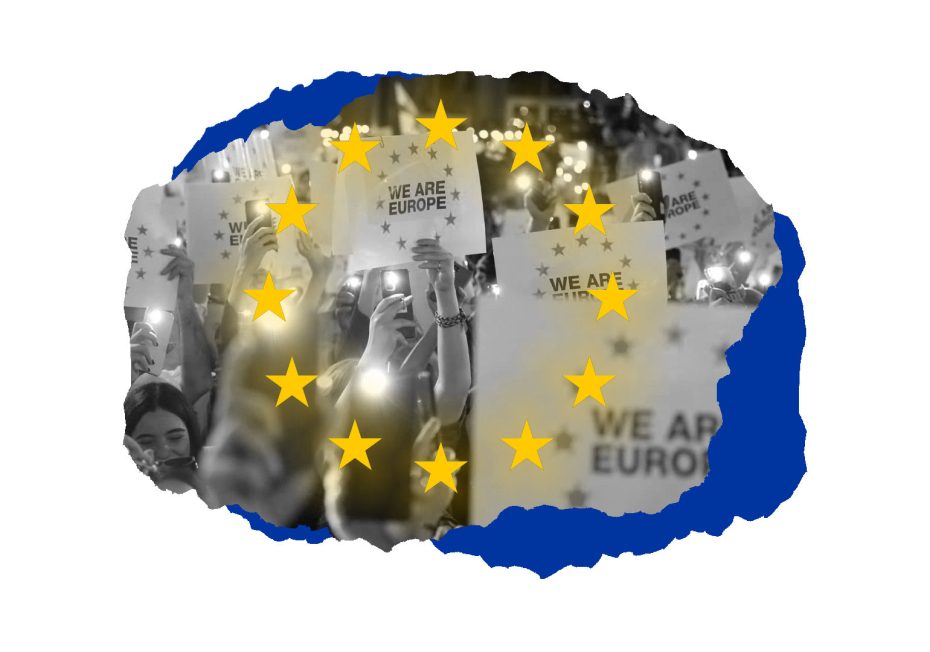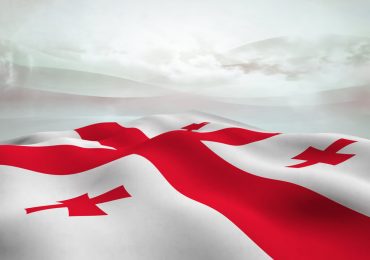On March 3, Georgia submitted an application to become a member of the European Union. The announcement followed a similar move by Ukraine after tens of thousands of Russian troops crossed its borders from the east, south, and Belarus from the north. The Georgian government’s decision was announced by Irakli Kobakhidze, the chairman of the ruling Georgian Dream party, who requested the EU to review the application in an emergency manner and to grant Georgia the status of an EU membership candidate. While the European Council is set to make an official decision on the candidate status of Ukraine, Moldova and Georgia, on June 16 the European Commission issued an opinion on Georgia’s application for EU membership where it did not recommend to the Council that Georgia should be given candidacy but the perspective to become a member of the EU. The Commission recommended that Georgia be granted candidate status provided that a number of recommendations are addressed.
Georgia’s application for EU membership came amid mounting controversy over its lack of solidarity with Ukraine and reluctance to join international sanctions against Russia. Georgia signed an Association Agreement with the EU in 2014 and accrued a Deep and Comprehensive Free Trade Agreement with the EU and a visa-free regime with Schengen Zone countries. Since then, the EU and Georgia have been working on the implementation of the reforms that Tbilisi promised to enact under that agreement. According to the 2021 Association Implementation Report, Georgia has advanced “steadily on its European path” “and remained committed to the Eastern Partnership.“ However, the report highlighted remaining important challenges, such as the lack of independence and accountability of the judiciary. These issues had had a negative impact on the Commission’s decision not to recommend Georgia’s candidacy for membership.
Georgia along with Ukraine and Moldova has signed Association Agreement with the EU “on economic integration and political approximation” and free trade, which is no guarantee for eventual membership. However, the steps taken in the framework of Association Agreements help countries better satisfy economic and administrative conditions for candidacy and eventual EU membership. Nonetheless, since 2018 Georgia has struggled with democratic backsliding. The government has displayed authoritarian tendencies as it harassed independent media and politicised the judiciary system. These issues impede Georgia’s chances to fulfil the strict political criteria essential for obtaining a membership candidate status. At the same time, the Georgian Dream ruling party has not shown active support for Ukraine, nor has it imposed sanctions against Moscow. Against this backdrop, it was crucial for the party to show commitment to the democratic reforms envisaged by the Charles Michel agreement and stand in full solidarity with Ukraine.
Despite the non-democratic trajectory of Georgia, the EU has still opened up the European perspective for the country and by fulfilling certain conditions the country can eventually obtain the candidate status. The European Commission will prepare another report at the end of 2022, reflecting the progress of reforms which the government has to undertake. These recommendations mainly include judiciary reform, overcoming issues of media polarisation, electoral reform, civil society involvement in decision-making processes, etc.
The current Eastern Partnership policy does not encompass the membership perspective for its participant countries. Therefore, in case Ukraine and Moldova obtain candidate status according to the upcoming decision of the European Council on June 23-24, there will be a need for creating a new framework of relations between the EU and Ukraine and Moldova. These countries will probably be considered under the same framework as the Western Balkans and Turkey. On the other hand, the conditions posed by the Commission might mean that Georgia will be considered a potential candidate country. Considering Georgia with the rest of the Eastern partnership programme countries will be irrelevant as the country stands with its achievements compared to Armenia, Azerbaijan and Belarus and has been part of the so-called Association Trio.
Relations with the candidate as well as potential candidate countries in Western Balkans are anchored in the EU’s Stabilisation and Association Process. This is a framework in which the countries progress towards closer association with the EU with the aid of various instruments including the financial Instrument for Pre-accession Assistance (IPA). Georgia with the currently open European perspective most probably will be considered under the same framework as Ukraine and Moldova. It is noteworthy to mention that the incentives that are obtained by the candidate and potential candidate countries are not very different. What is crucial for the Georgian government is to work on all the conditions presented by the European Commission. The implementation of electoral and judiciary reforms is essential for Georgia to obtain a candidate status. The government should implement the commitment to “de-oligarchisation” by eliminating the excessive influence of vested interests in economic, political, and public life; undertake stronger efforts to guarantee a free, professional, pluralistic and independent media environment, ensure the involvement of civil society in decision-making processes at all levels.


















